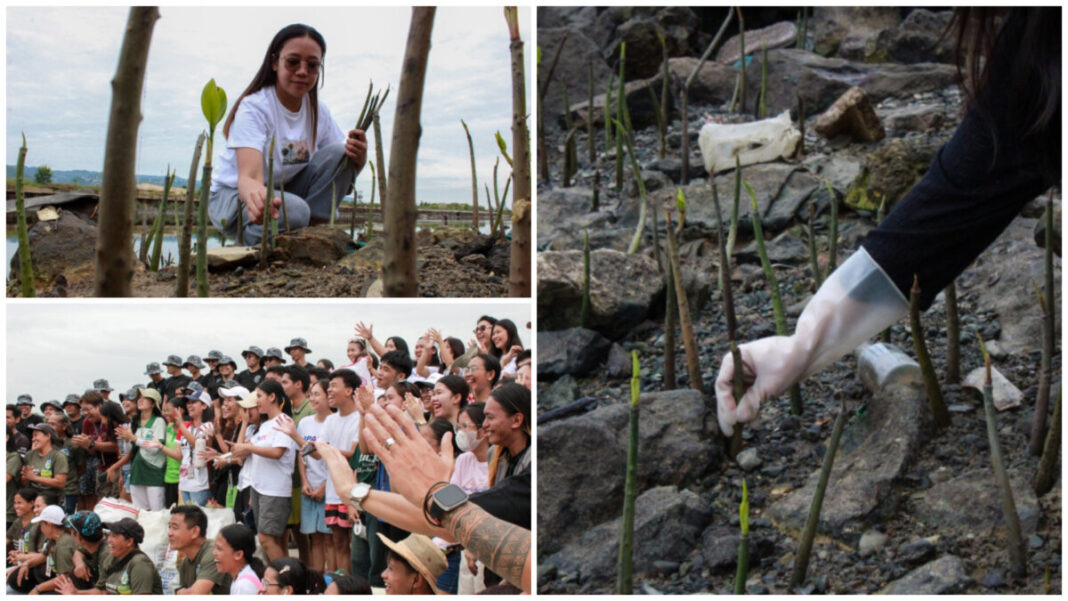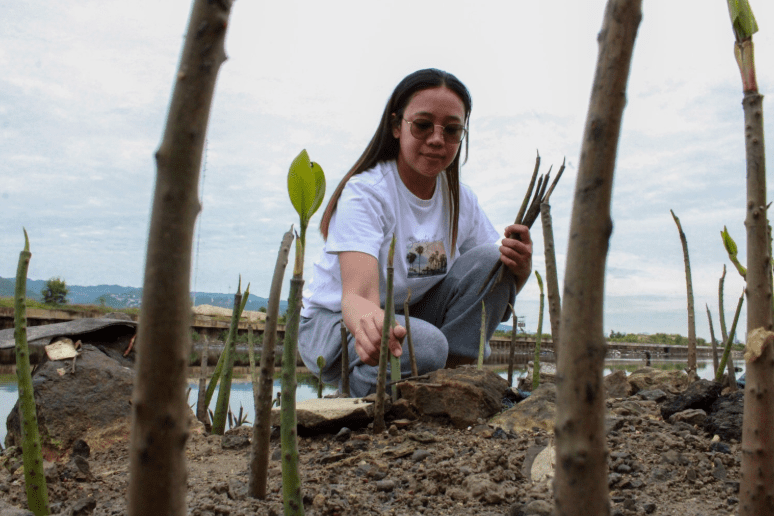
Over 20 youth organizations came together for Treebyouth for Kalikopan Greeneration 4, a tree planting initiative aimed at raising environmental awareness and promoting sustainable community action in Cebu City.
The activity, spearheaded by the Cebu City Youth Development Office (CCYDO) in collaboration with the Local Youth Development Council (LYDC) and the Cebu City Environment and Natural Resources Office (CCENRO), was held on August 30, at the South Road Properties (SRP) Backroad, Pilipinas Water Resources.
Around 125 youth volunteers representing schools, barangays, and civic groups planted more than 1,000 mangrove seedlings, reinforcing Cebu’s coastal defenses and fostering biodiversity.
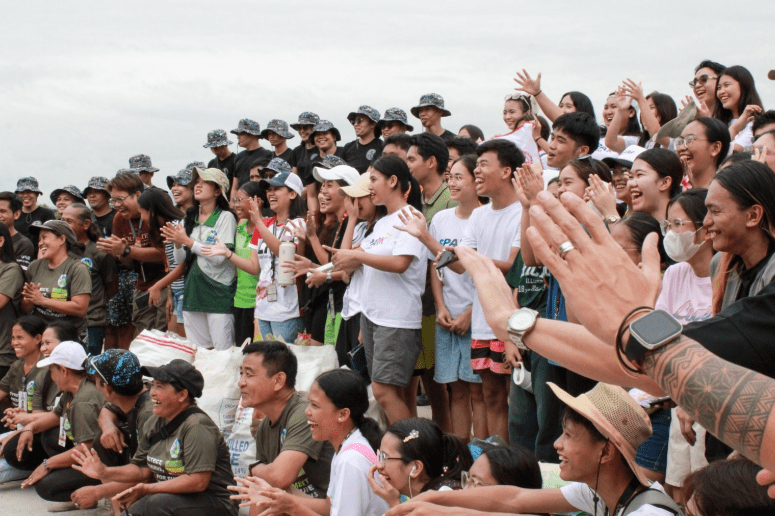
𝐘𝐨𝐮𝐭𝐡 𝐢𝐧 𝐂𝐥𝐢𝐦𝐚𝐭𝐞 𝐀𝐜𝐭𝐢𝐨𝐧
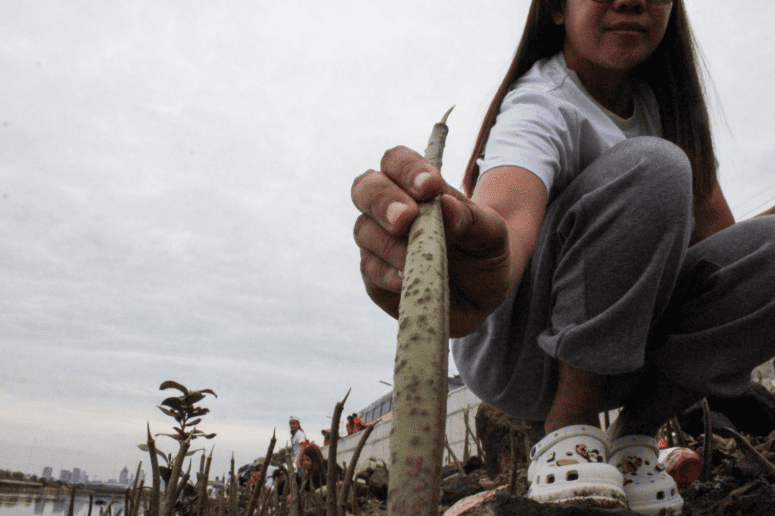
According to Abdul Khamal Manonggiring, Project Head of Treebyouth for Kalikopan, the activity highlighted the critical role of young people in addressing climate challenges.
“Mangrove tree planting is important as it serves as a barrier for coastal communities in Cebu against natural disasters such as typhoons,” Manonggiring said.
He also added that Mangrove trees improve the air quality in the city.
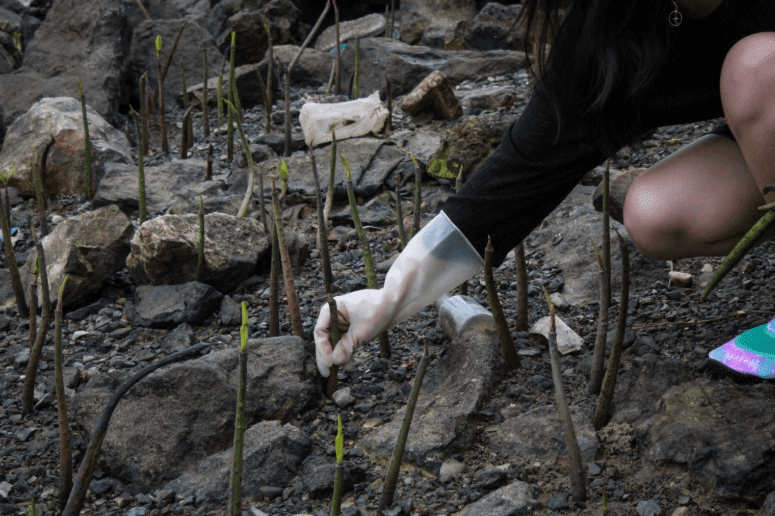
𝐍𝐨𝐭 𝐉𝐮𝐬𝐭 𝐟𝐨𝐫 𝐓𝐲𝐩𝐡𝐨𝐨𝐧𝐬
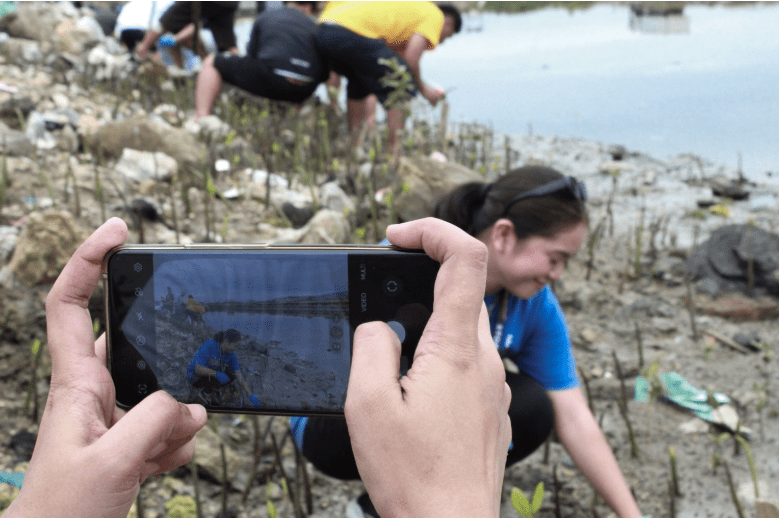
The SRP planting site, spanning 1.67 square kilometers, is home to a diverse array of flora and fauna.
“A thriving ecosystem exists here because of the mangroves. We are planting species that are endemic and naturally adaptable to the area,” explained John Joeffrey D. Dabatos, Jr., Project Head of 256 K-Trees.
He added that the site also provides habitat for wildlife, especially bird species. Among these is the Philippine Brahminy Kite, locally known as Banog, a bird commonly found in wetlands.
“We want to preserve this habitat for them despite rapid urban advancements,” Dabatos emphasized.
According to the Convention on Biological Diversity, the Philippines is among the world’s 18 mega-biodiverse countries, hosting two-thirds of the earth’s biodiversity and between 70% and 80% of the world’s plant and animal species.
𝐓𝐡𝐞 𝐑𝐨𝐥𝐞 𝐨𝐟 𝐒𝐨𝐜𝐢𝐚𝐥 𝐌𝐞𝐝𝐢𝐚
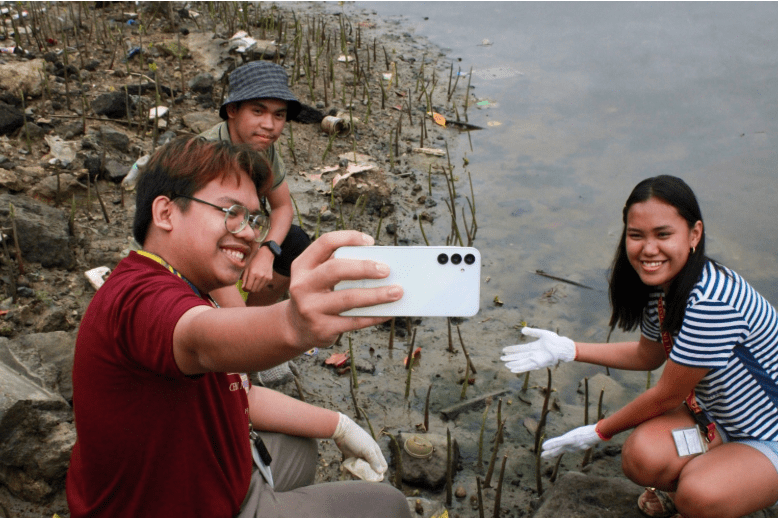
The event also highlighted how digital platforms enable young people to engage in civic action.
Hazel Hope Hyacinth Dolorito, Chief Operating Officer of Cebu Youth Ambassadors, said that social media has transformed the way information spreads among the youth sector.
“Digital tools connect different groups and young leaders across Cebu. By breaking barriers of distance and time, they make volunteering, forums, and community projects more accessible. They also empower the youth to stay informed, speak up, and collaborate,” Dolorito explained.
Through Facebook, Instagram, and other platforms, organizers were able to reach and mobilize different youth organizations, boosting participation.
“Because of social media, more people became aware of the tree planting activity and were encouraged to join,” Manongirring said.
More environmental activities are planned for the rest of the year. They encouraged the youth to continue supporting sustainable programs and to take an active role in protecting Cebu’s natural environment.

